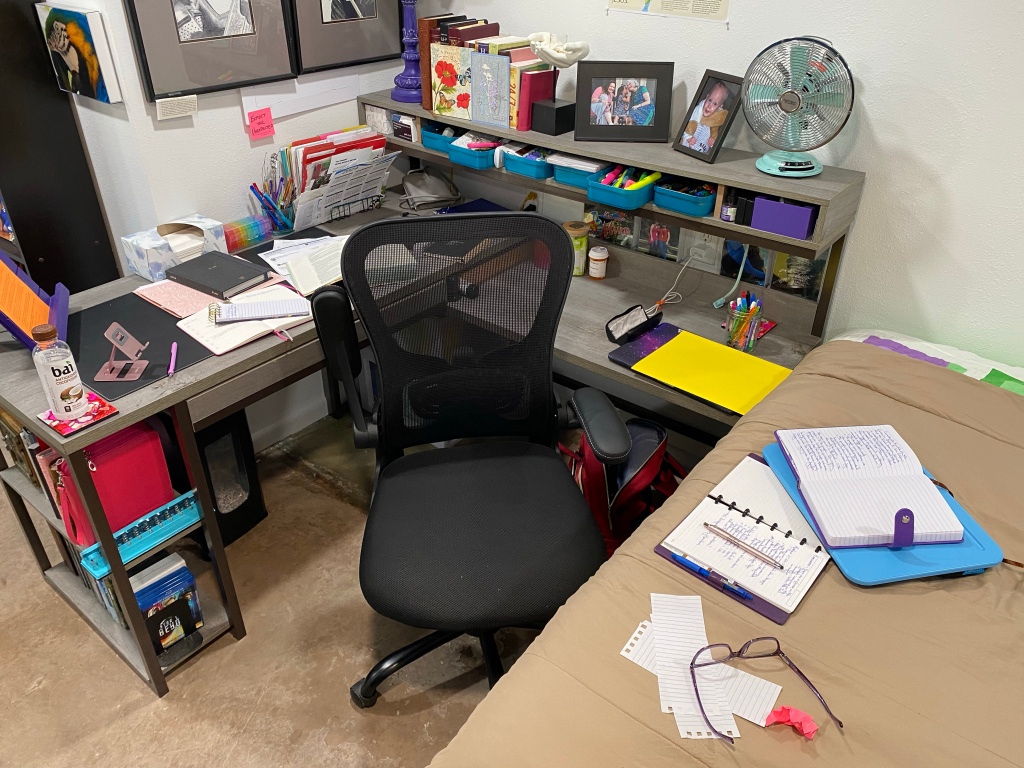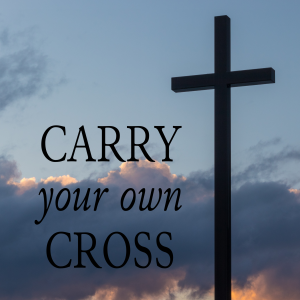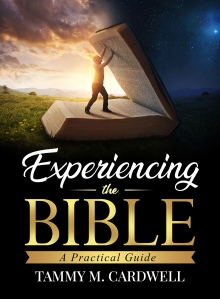
Photo Credit: Creative Heart Photography
The above photo is my current Facebook cover image. It asks an important question and gives my answer.
What is your identity?
Think carefully before responding, because identity is a precious thing, and we should be cautious about how we apply it to ourselves.
On the surface, we find our identity in a variety of places. Are you an avid Cowboys fan? Perhaps your children are your life right now and you identify as a loving parent. Maybe you spent years working on your medical career and wear the letters MD with pride.
Look at my graphic, at the purple words, and you see what most people would perceive as my identity. I rejoice in being a mother both to my sons and the daughters they gave me when they married. Being called Granna by my grandchildren and my grandson’s fiancé brings me joy; I adore all my kids! They are gifts from God to me.
I am also honored that I’ve been called by God to be a blogger and author. I try to serve Him well in these areas, being led by His Spirit to produce books and blog posts that bless! You could say, accurately, that they are my gift to God. So is my service in my local church where I’m a secretary and the coffee shop manager, and was an active volunteer for decades before being hired full time.
None of these are my core identity.
Which brings me to the white letters, the ones that are strategically repeated: Child of God. This is my core identity, the foundation on which everything else is built, the truth that infuses everything I do. While I do occasionally blow it and have to apologize to God or others, I try to always be led by God and His love. My goal is that every single thing I do bring Him glory in some way. I can no more separate my Christianity from my writing or parenting or anything else than I could separate the hydrogen from the oxygen in water.
I’ve been mulling over this topic since publishing “Understanding Your Aphant.” I’d asked for input from a group of aphantasics in hopes of making it as accurate as possible. I got great feedback and did take their suggestions seriously, making a couple of tweaks. One of the responses I received, though, said essentially that it was great except for the one mention of God.
I got what the person was saying, because they don’t believe in the God I serve. The thing is, I DO. Leaving out that one sentence would have meant editing ME, censoring not just what I believe, but who I am.
So, if this post is the first thing you’ve read of mine, know right now that God is front and center in my blog because He is front and center in my life. He is more important than anyone or anything else. I absolutely adore my family, but I would walk away from any or all of them before I would walk away from God. It would pain me to do it; it would be agony. Nonetheless, if any one of them were to give me an ultimatum, them or God, God would win hands down.
So yeah, you’ll see Him mentioned many times here. Join my community and you’ll have me looking over your shoulder, encouraging you to find Him if you don’t know Him and get even closer to Him if you do. He is IT. He is everything to me. My treasure isn’t in anything here on earth, but is in Him, and my ultimate goal is to help every one of my readers reach the place where they can honestly say the same thing.
“For where your treasure is, there will your heart be also.” (Matthew 6:21 ) Our treasure doesn’t need to be in anything of this earth because this earth is temporary. Our treasure needs to be in Heaven where we’ll have access to it eternally.
Are you wondering what I’m even talking about? Ok, consider this.
Many Christians are watchful, more now than ever, expecting the Rapture of the Church to take place at any moment. We’re ready to hear that trumpet and Jesus call us to leave Earth behind and join Him in Heaven. (1 Thess. 4:16-18 gives you a glimpse of what I’m talking about.) However, there are some who don’t want Jesus to come back yet. To them, it’s more important that they have the chance to get married, or graduate college, or watch their kids grow up, or whatever. We can see where their hearts are. With that in mind, where is their treasure? Really?
I’m not judging, not accusing! I’m only asking. Yes, awesome things happen in this life, but nothing, absolutely nothing, that we can experience here holds a candle to what our lives will be once we, as I tend to think of it, really start living. In this life, we’re limited to the here and now. After this life, we have all eternity ahead of us.
So yes, “Child of God” is my identity, and all the other things are vital and precious parts of what I get to be and do as His child.
So, what about you? What is your identity?
Celebrating Jesus!
Tammy C




